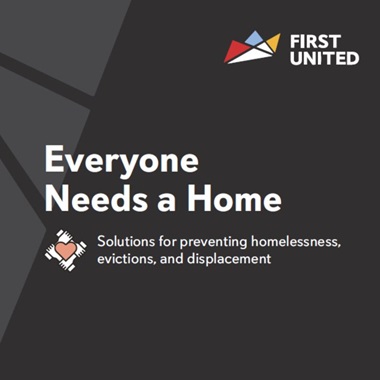
First United tweeted February 13: “Our comprehensive law reform platform is now available to view! It’s based in part on findings from our #BCEvictionMap project and outlines evidence-based recommendations to strengthen tenant protections. Read the full report here.
Following is their Summary of the 80-page report.
Tenant households in British Columbia are bearing the brunt of the housing crisis, facing the highest eviction rates in the country and dramatic increases in rent.
Eviction causes homelessness, community displacement, family separation, disconnection from work and necessary services, and a host of physical and mental health impacts. We see these impacts across British Columbia, and across the income spectrum.
The risks are higher for Indigenous people, Elders and seniors, people with disabilities, children and other vulnerable groups. Tenants are living in fear because they know eviction is easy. Landlords are motivated to evict to increase rental profits.
It doesn’t have to be this way.
We call on the Minister of Housing and the government of British Columbia to amend the Residential Tenancy Act to:
1. Prevent unnecessary and bad faith evictions:
• require landlords to make an application and show evidence before evicting tenants
• include better protections for tenants against bad faith ‘Landlord’s Use’ evictions and coercive ‘mutual agreements’
• give tenants an opportunity to pay arrears and resolve issues before landlords can apply for eviction
2. Make eviction a last resort instead of a first response:
• abolish 48-hour orders of possession and instead to allow a tenant enough time to find new housing after eviction
• require multiple factors to be considered before an eviction order is granted, including the impacts of eviction, the risk of homelessness and displacement, any effects on children and other factors such as Indigenous identity and having a disability
3. Improve procedural fairness and appeal rights at the Residential Tenancy Branch:
• confirm that tenants have the right to review the landlord’s evidence for eviction and to respond to it
• allow internal review of decisions where there is an error of law or fact or natural justice has not been followed
• change the time limit for review applications from 2 days to 15 days
4. Protect tenants from illegal conduct:
• prohibit landlords from harassing or threatening tenants, or inducing them to leave
• increase penalties for landlords who breach the Act and increase compensation for tenants who have been harmed
5. Support diversity and inclusion in rental housing:
• prohibit lease terms that charge extra for additional occupants
• prohibit ‘no pets’ clauses
• prohibit landlords from interfering with the use of cooling devices in hot weather
• give co-tenants the right to continue a tenancy, and give all tenants the right to assign their tenancy
6. Stop rent gouging and disincentivize illegal evictions:
• apply the annual allowable rent increase to all units, even where there is a change of tenant (vacancy control)
The author of the report is Dr. Sarah Marsden, Director of Systems Change and Legal at First United. It was edited by Amanda Burrows, Executive Director, and Katie Koncan, Director of Development and Communications.
First United describes itself in this way:
Shoulder to shoulder with our community, we operate from a harm reduction perspective and as a faith-based service provider, we welcome and affirm individuals from all walks of life without exception. At our core is the mission, ministry, and call to social justice of the United Church of Canada.
Go here for the ‘Residential Tenancy Act Law Reform Platform,’ the ‘Calls to Action’ Summary (and link to a petition), and the full ‘Everyone Needs a Home’ report.
